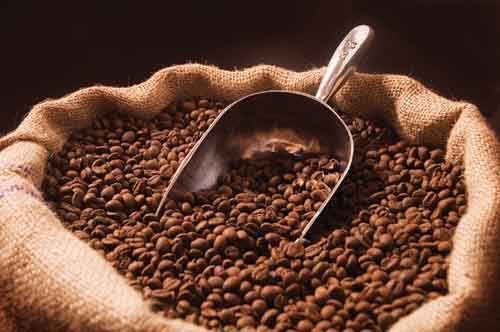Sumatra Lindong coffee beans
Holding a large cup of Sumatran coffee, a wonderful warmth and mellow smooth feeling arises spontaneously. To me, this feeling is different from any other coffee. After drinking this wonderful brew of coffee for the first time, I feel comfortable and refreshing. In this wonderful experience, I slowly relaxed, completely immersed in this moment, my thoughts drifted far away, and then a drop of coffee unwittingly spilled on my shirt. It's worth it. It's my favorite coffee!
-Gary Elbaum, Business partner, Northwest region, USA
Excerpts from decaine Sumatran coffee:
Low Sumatran Coffee is the perfect companion for Italian cheesecake midnight snacks after the movie is over.
-Karla Bjorklund, store partner, Vancouver, Washington, USA
Country Information:
Population: 214.9 million (estimated in 2005, 4th in the world)
Area: 190 square kilometers
Education ratio: 88%
Average life expectancy: 70 years
Anecdotes:
■ Indonesia has 17000 islands, of which about 6000 are inhabited.
The main cities of ■ are the capital Jakarta (population 8.8 million), Surabaya (population 3 million), Medan (population 2.5 million), Bandung (population 2.5 million), and the other 3 million people in the surrounding areas.
The distribution of the ■ national economy is 14.6 per cent in agriculture, 45 per cent in industry and 40.4 per cent in services (estimated in 2004).
■ agricultural products include: Rice, cassava, peanuts, rubber, cocoa, coffee, palm oil, poultry, beef, pork, eggs.
In ancient China, Shennong tasted all kinds of herbs and recorded them one by one, so that later generations could have a systematic understanding of many plants. There is no such person as Shennong in the western world, let alone any written record, so there are different legends about the origin of coffee. Among them, the most common and popular story is the story of the shepherd. Legend has it that there was a shepherd who happened to find his sheep jumping and dancing while herding sheep. If you look carefully, it turns out that the sheep ate a kind of red fruit that led to their funny behavior. He tried to pick some of these red fruits to boil, but the room was full of fragrance, and the juice was even more refreshing and refreshing after drinking it. Since then, this fruit has been used as a refreshing drink and has been well received.
The price of Sumatran coffee beans (Sumatra coffee) the story of Sumatran coffee the origin of the word "coffee" comes from the Greek word "Kaweh", meaning "strength and passion". Coffee tree is an evergreen shrub of Capsaceae. Daily coffee is made from coffee beans combined with a variety of cooking utensils, and coffee beans refer to the nuts in the fruit of the coffee tree, which are then roasted with appropriate roasting methods.
In ancient times, Arabs first dried and boiled coffee beans and drank the juice as stomach medicine, thinking that it could help digestion. Later, it was found that coffee also had a refreshing effect, and because Muslims strictly prohibited drinking, coffee was used instead of alcoholic beverages as a refreshing drink. After the 15th century, Muslims who made pilgrimages to the holy land of Mecca brought coffee back to their places of residence, and coffee gradually spread to Egypt, Syria, Iran, Turkey and other countries. The entry of coffee into Europe should be attributed to the Ottoman Empire of Turkey at that time. Because the coffee-loving Ottoman army marched westward to Europe and was stationed there for several years, when the army finally withdrew, it left a large number of supplies, including coffee beans. People in Vienna and Paris were able to develop European coffee culture based on these coffee beans and the cooking experience gained from the Turks. The war was originally occupied and destroyed, but it unexpectedly brought about cultural exchange and even integration, which was unexpected by the rulers. Coffee culture matured in Europe. In the early sixteenth century, coffee spread to Europe. King Clement VIII of France at that time once said: "although it is the devil's drink, it is delicious." It is a pity that this kind of drink is only monopolized by pagans. Therefore, it is accepted that Christians can also drink coffee. There were countless coffee houses in England, and only men could enter at that time. Coffee is very popular in gentlemen's social places. Men talk a lot about politics, literature, business and other issues here, and some of them don't even go home. As a result, in 1674, many housewives petitioned to close the coffee shop. Coffee culture has a profound impact on the citizens of Paris, and a large number of coffee shops on street corners have also begun to grow. In countless coffee salons, new literature, philosophy and art all appeared, during which countless thinkers and philosophers were born, such as Balzac Luling and so on. Intellectuals continue to gather and are famous for gathering in the intellectual coffee salon to talk. ESPRESSO began to appear in Italian espresso, causing a change in the way coffee is consumed. Coffee is becoming more and more popular, so more and more people are interested in cultivating coffee. A 13th century manufacturer who brought coffee cherries everywhere and planted them. At the beginning of the eighteenth century, the French admiral de? Crewe used his own drinking water on the ship to irrigate the coffee seedlings in buckets and then planted them on the French island of Marchinique. Soon after, coffee spread to Central and South America, and coffee cultivation expanded to all parts of the world.
Encyclopedia business card
Manning Coffee: Manning Coffee is produced in Sumatra, Indonesia, Asia, also known as "Sumatran Coffee". Her flavor is very rich, fragrant, bitter, mellow, with a little sweetness. Most coffee lovers drink on their own, but it is also an indispensable variety for blending coffee.
Basic Information Manning Coffee is produced in Sumatra, Indonesia, Asia, also known as "Sumatran Coffee". Her flavor is very rich, sweet, pure bitter, mellow, with a little sweet and slightly sour, with a long aftertaste and aftertaste. Most coffee lovers drink on their own, but it is also an indispensable variety for blending coffee. Taste
Manning Coffee: the palate is rich and solid, with a pleasant sour taste. The smell is mellow, the acidity is moderate, the sweetness is rich and very intriguing, it is suitable for deep baking and exudes a strong aroma. The gentleman of coffee-Sumatra mantenin is a first-class coffee bean growing in the plateau and mountain area at an altitude of 750-1500 meters, and the first-class mantenin produced by Takengon and Sidikalang is of the highest quality. Because Mantenin has an irreplaceable mellow taste, UCC Ujima Coffee, Japan's largest coffee company, partnered with PT Gunung Lintong, a famous coffee merchant in Sumatra, to operate their first coffee plantation in Asia in 1995, which shows how important Mantenin is in the coffee field.

Important Notice :
前街咖啡 FrontStreet Coffee has moved to new addredd:
FrontStreet Coffee Address: 315,Donghua East Road,GuangZhou
Tel:020 38364473
- Prev

Sugar cane juice, Kenyan Jinchu Coffee with sour red wine, its flavor, characteristics, taste and manor introduction
Enbu processing Plant (Embu Washing Station), which comes from Gichugu, adopts Kenyan double washing method and grows in Manyata-Enbu County on the eastern slope of the Kenyan Mountains from 1550 to 1750. The variety is Kenya's classic SL28,SL34, coupled with the large temperature difference between day and night in the deceived area, and the red phosphoric acid soil in Kenya, which makes the sour and sweet become the second order of this Kenyan branch.
- Next

Costa Rican coffee flavor Costa Rican coffee beans in Costa Rica coffee producing area
The coffee beans produced in the high latitudes of Costa Rica are famous in the world, full-bodied, mild in taste, but extremely sour. The coffee beans here have been carefully processed, which is why there is high-quality coffee. Tarasu, located in the south of SanJos, the capital of Costa Rica, is one of the most valued coffee growers in the country. Tarrazu World
Related
- Detailed explanation of Jadeite planting Land in Panamanian Jadeite Manor introduction to the grading system of Jadeite competitive bidding, Red bid, Green bid and Rose Summer
- Story of Coffee planting in Brenka region of Costa Rica Stonehenge Manor anaerobic heavy honey treatment of flavor mouth
- What's on the barrel of Blue Mountain Coffee beans?
- Can American coffee also pull flowers? How to use hot American style to pull out a good-looking pattern?
- Can you make a cold extract with coffee beans? What is the right proportion for cold-extracted coffee formula?
- Indonesian PWN Gold Mandrine Coffee Origin Features Flavor How to Chong? Mandolin coffee is American.
- A brief introduction to the flavor characteristics of Brazilian yellow bourbon coffee beans
- What is the effect of different water quality on the flavor of cold-extracted coffee? What kind of water is best for brewing coffee?
- Why do you think of Rose Summer whenever you mention Panamanian coffee?
- Introduction to the characteristics of authentic blue mountain coffee bean producing areas? What is the CIB Coffee Authority in Jamaica?

